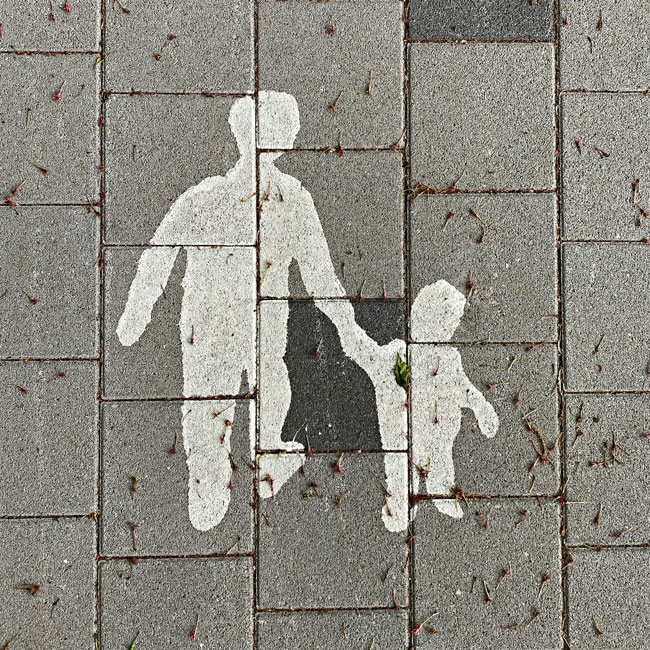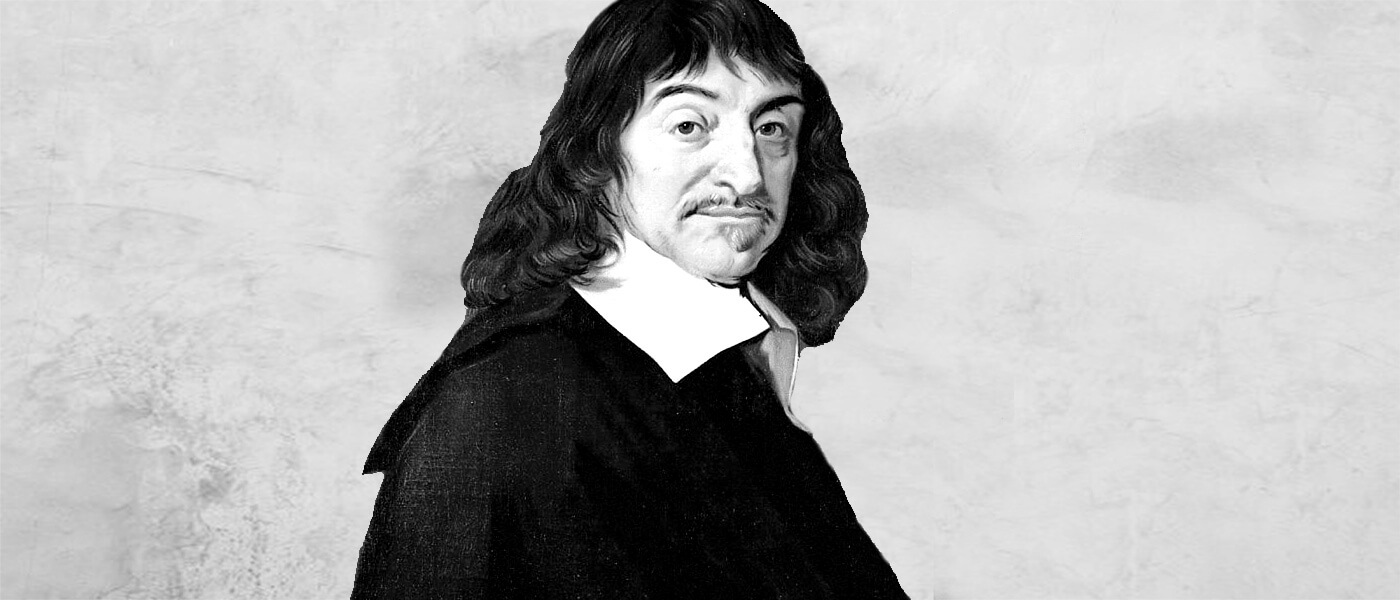Ethics Explainer: Social Contract

Social contract theories see the relationship of power between state and citizen as a consensual exchange. It is legitimate only if given freely to the state by its citizens and explains why the state has duties to its citizens and vice versa.
Although the idea of a social contract goes as far back as Epicurus and Socrates, it gained popularity during The Enlightenment thanks to Thomas Hobbes, John Locke and Jean-Jacques Rousseau. Today the most popular example of social contract theory comes from John Rawls.
The social contract begins with the idea of a state of nature – the way human beings would exist in the world if they weren’t part of a society. Philosopher Thomas Hobbes believed that because people are fundamentally selfish, life in the state of nature would be “nasty, brutish and short”. The powerful would impose their will on the weak and nobody could feel certain their natural rights to life and freedom would be respected.
Hobbes believed no person in the state of nature was so strong they could be free from fear of another person and no person was so weak they could not present a threat. Because of this, he suggested it would make sense for everyone to submit to a common set of rules and surrender some of their rights to create an all-powerful state that could guarantee and protect every person’s right. Hobbes called it the ‘Leviathan’.
It’s called a contract because it involves an exchange of services. Citizens surrender some of their personal power and liberty. In return the state provides security and the guarantee that civil liberty will be protected.
Crucially, social contract theorists insist the entire legitimacy of a government is based in the reciprocal social contract. They are legitimate because they are the only ones the people willingly hand power to. Locke called this popular sovereignty.
Unlike Hobbes, Locke thought the focus on consent and individual rights meant if a group of people didn’t agree with significant decisions of a ruling government then they should be allowed to join together to form a different social contract and create a different government.
Not every social contract theorist agrees on this point. Philosophers have different ideas on whether the social contract is real, or if it’s a fictional way to describe the relationship between citizens and their government.
If the social contract is a real contract – just like your employment contract – people could be free not to accept the terms. If a person didn’t agree they should give some of their income to the state they should be able to decline to pay tax and as a result, opt out of state-funded hospitals, education, and all the rest.
Like other contracts, withdrawing comes with penalties – so citizens who decide to stop paying taxes may still be subject to punishment.
Other problems arise when the social contract is looked at through a feminist perspective. Historically, social contract theories, like the ones proposed by Hobbes and Locke, say that (legitimate) state authority comes from the consent of free and equal citizens.
Philosophers like Carole Pateman challenge this idea by noting that it fails to deal with the foundation of male domination that these theories rest on.
For Pateman the myth of autonomous, free and equal individual citizens is just that: a myth. It obscures the reality of the systemic subordination of women and others.
In Pateman’s words the social contract is first and foremost a ‘sexual contract’ that keeps women in a subordinate role. The structural subordination of women that props up the classic social contract theory is inherently unjust.
The inherent injustice of social contract theory is further highlighted by those critics that believe individual citizens are forced to opt in to the social contract. Instead of being given a choice, they are just lumped together in a political system which they, as individuals, have little chance to control.
Of course, the idea of individuals choosing not to opt in or out is pretty impractical – imagine trying to stop someone from using roads or footpaths because they didn’t pay tax.
To address the inherent inequity in some forms of social contract theory, John Rawls proposes a hypothetical social contract based on fundamental principles of justice. The principles are designed to provide a clear rationale to guide people in choosing to willingly agree to surrender some individual freedoms in exchange for having some rights protected. Rawls’ answer to this question is a thought experiment he calls the veil of ignorance.
By imagining we are behind a veil of ignorance with no knowledge of our own personal circumstances, we can better judge what is fair for all. If we do so with a principle in place that would strive for liberty for all at no one else’s expense, along with a principle of difference (the difference principle) that guarantees equal opportunity for all, as a society we would have a more just foundation for individuals to agree to a contract that in which some liberties would be willingly foregone.
Out of Rawls’ focus on fairness within social contract theory comes more feminist approaches, like that of Jean Hampton. In addition to criticising Hobbes’ theory, Hampton offers another feminist perspective that focuses on extending the effects of the social contract to interpersonal relationships.
In established states, it can be easy to forget the social contract involves the provision of protection in exchange for us surrendering some freedoms. People can grow accustomed to having their rights protected and forget about the liberty they are required to surrender in exchange.
Whether you think the contract is real or just a useful metaphor, social contract theory offers many unique insights into the way citizens interact with government and each other.
Ethics in your inbox.
Get the latest inspiration, intelligence, events & more.
By signing up you agree to our privacy policy
You might be interested in…
Opinion + Analysis
Politics + Human Rights, Science + Technology
Who’s to blame for Facebook’s news ban?
Opinion + Analysis
Politics + Human Rights
Nurses and naked photos
Opinion + Analysis
Business + Leadership, Politics + Human Rights
Do diversity initiatives undermine merit?
Opinion + Analysis
Politics + Human Rights, Society + Culture
Making sense of our moral politics
BY The Ethics Centre
The Ethics Centre is a not-for-profit organisation developing innovative programs, services and experiences, designed to bring ethics to the centre of professional and personal life.
Why hard conversations matter

Why hard conversations matter
Opinion + AnalysisRelationships
BY Simon Longstaff The Ethics Centre 31 AUG 2016
There are times in the history of a nation when its character is tested and defined. Too often it happens with war, natural disasters or economic collapse. Then the shouting gets our attention.
But there are also our quieter moments – the ones that reveal solid truths about who we are and what we stand for.
How should we recognise Indigenous Australians? Can our economy be repaired in a manner that is even-handed? How will we choose if forced to decide between China and the United States? How do we create safe ways for people seeking asylum? Can we grow our economy and protect our people and environments? These are just some of the questions we face.
Too often, I see conversations shut down before they have even begun. People with a contrary point of view are faced with outrage, shouted down or silenced by others driven by the certainty of righteous indignation.
And here’s another question. Do we have the capacity to talk about these things without tearing ourselves and each other apart?
There are some safe places for open conversation about difficult questions. Thirty years ago I began work at a not-for-profit, The Ethics Centre dedicated to creating them. The Festival of Dangerous Ideas now enters its 11th year with a new digital format to cater to our current times, bringing leading thinkers from around the world together to discuss important issues.
Sadly, there is a growing fragility across Australian society. The demand for ideological purity (you’re completely ‘with us’ or ‘against us’) puts us at risk of a fractured and stuffy world of absolutes.
Too often, I see conversations shut down before they have even begun. People with a contrary point of view are faced with outrage, shouted down or silenced by others driven by the certainty of righteous indignation. In such a world, there is no nuance, no seeking to understand the grey areas or subtleties of argument.
Attempts to prove to people that they are wrong just leads to stalemate. Barricades go up and each side lobs verbal grenades. There is another way.
This phenomenon crosses the political spectrum – embracing conservatives and progressives alike. In my opinion, it is the product of a self-fulfilling fear that our society’s ethical skin is too thin to survive the prick of controversy and debate. This is a poisonous belief that drains the life from a liberal democracy.
Fortunately, the antidote is easily at hand. In essence we need to spend less time trying to change other people’s minds and more time trying to understand their point of view. We do that by taking them entirely seriously.
Why make this change? Because attempts to prove to people that they are wrong just leads to stalemate. Barricades go up and each side lobs verbal grenades. There is another way. We could allow people to work out what the boundaries are for their own beliefs.
Working out the lines we cannot cross is often the first step towards others, but it can only happen when people feel safe. Giving people the space to fall on just the right side of such lines can make a world of difference.
So I wonder, might we pause for a moment, climb down from our battle stations and call a ceasefire in the wars of ideas? Might we recognise the person on the other side of an issue may not be unprincipled? Perhaps they’re just differently principled.
Can we see in the face of our ideological opponent another person of goodwill? What then might we discover about each other; what unites and, yes, what divides? What then might we understand about the issues that will define us as a people?
Let’s rediscover the art of difficult discussions in which success is measured in the combination of passion and respect. Let’s banish the bullies – even those who claim to be well-intentioned. They, alone, have no place in the conversations we now need to have.
Ethics in your inbox.
Get the latest inspiration, intelligence, events & more.
By signing up you agree to our privacy policy
You might be interested in…
Big thinker
Relationships
Big Thinker: René Descartes
Opinion + Analysis
Health + Wellbeing, Relationships
Easter and the humility revolution
Opinion + Analysis
Business + Leadership, Relationships
Moving work online
Opinion + Analysis
Health + Wellbeing, Relationships









